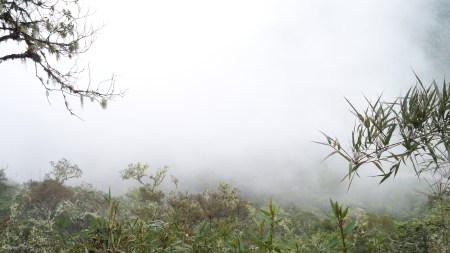Louise Erdrich (b. 1954) is an Ojibwa writer who writes poetry, novels, children's books, and more. "Jacklight" shares its name with her first critically-acclaimed collection of poetry, published in 1984.
Jacklight
The same Chippewa word is used both for flirting and hunting game, while another Chippewa word connotes both using force in intercourse and also killing a bear with one’s hands.
-R.W. Dunning, Social and Economic Change Among the Northern Ojibwa (1959)
We have come to the edge of the words,
out of brown grass where we slept, unseen,
out of knotted twigs, out of leaves creaked shut,
out of hiding.
At first the light wavered, glancing over us.
Then it clenched to a fist of light that pointed,
searched out, divided us.
Each took the beams like direct blows the heart answers.
Each of us moved forward alone.
We have come to the edge of the woods,
drawn out of ourselves by this night sun,
this battery of polarized acids,
that outshines the moon.
We smell them behind it
but they are faceless, invisible.
We smell the raw steel of their gun barrels,
mink oil on leather, their tongues of sour barley.
We smell their mothers buried chin-deep in wet dirt.
We smell their fathers with scoured knuckles,
teeth cracked from hot marrow.
We smell their sisters of crushed dogwood, bruised apples,
of fractured cups and concussions of burnt hooks.
We smell their breath steaming lightly behind the jacklight.
We smell the itch underneath the caked guts on their clothes.
We smell their minds like silver hammers
cocked back, held in readiness
for the first of us to step into the open.
We have come to the edge of the woods,
out of brown grass where we slept, unseen,
out of leaves creaked shut, out of our hiding.
We have come here too long.
It is their turn now,
their turn to follow us. Listen,
they put down their equipment.
It is useless in the tall brush.
And now they take the first steps, not knowing
how deep the woods are and lightless.
How deep the woods are.









